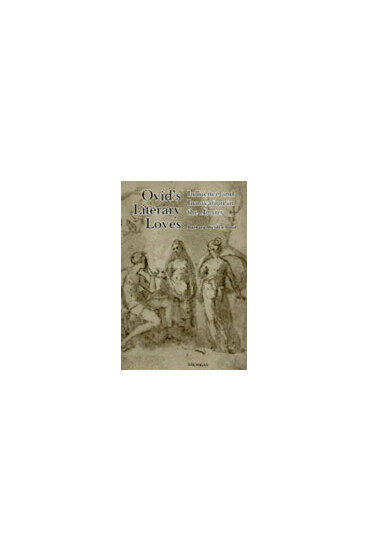Ovid's Literary Loves
Influence and Innovation in the Amores
Brings the Amores into the forefront of scholarly discussion
Description
Ovid's poetry has in recent years enjoyed a remarkable renaissance: in particular, there has been a surge of interest in the Heroides, the Fasti, and his exile poetry. Ovid's Literary Loves, by Barbara Weiden Boyd, reopens the Amores for the modern reader. The volume establishes a context for the recent reception of the Amores, and proposes an alternative approach to the collection by discussing recent trends in the discussion of imitation in Roman poetry. A premise basic to most Ovidian studies has been that the Amores are not only imitative, but parodic, both of the elegiac genre writ large and of Propertius in particular. In contrast, Boyd emphasizes the many nonelegiac, non-Propertian features of the collection. Ovid's irony and its consequences are also discussed with special attention to the narrative structure of the three books.
Boyd's thoughtful approach to imitation in Latin poetry brings into prominence the formative role played by Virgil in shaping Ovid's "poetic memory," even in the Amores. The detailed examination of Ovidian extended similes shows how the poet exploits the literary past precisely in order to free himself from generic restraint and to expand the narrow horizons of elegy. Boyd argues that this paradox is the essence of Ovidian poetics.
Ovid's Literary Loves is an imaginative approach to imitation in Latin poetry and makes a significant contribution to current discussions of the subject. This is one of the first contemporary scholarly monographs on the Amores, and it will find a large and welcoming audience of Latinists at all levels of study.
Barbara Weiden Boyd is Associate Professor of Classics, Bowdoin College, Brunswick, Maine.
Barbara Weiden Boyd is Associate Professor of Classics, Bowdoin College, Brunswick, Maine.
Reviews
"Boyd has produced an enthusiastic and stimulating reassessment of Ovid's early elegiac collection. Along with impressive control of the scholarship of the last half-century, she exhibits exemplary skill and restraint in devising and using technical terms without lapsing into jargon. She has a particular gift for citing representative examples of contrasting critical positions. Her translations throughout are well suited to their purpose. . . . Students of Ovid, and of Latin elegy, will find much useful material here, and those interested in imitation of Latin literature cannot afford to overlook the scheme Boyd presents. . . ."
- Betty Rose Nagle, Indiana University
—Betty Rose Nagle, Indiana University, American Journal of Philology, Volume 120, No. 3
". . . Boyd's book is valuable for its sympathetic and detailed close readings of specific elegies. . . ."
- Choice
—Choice

